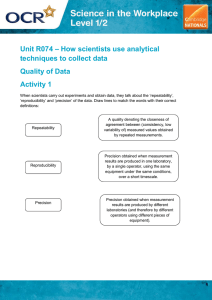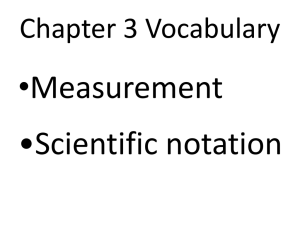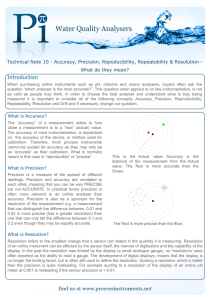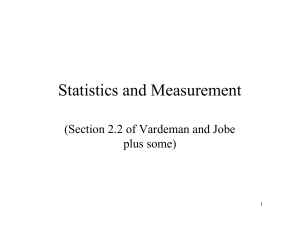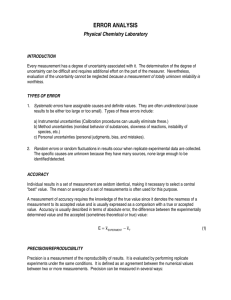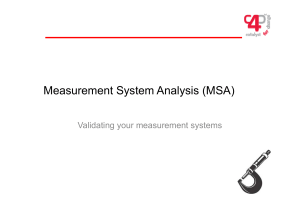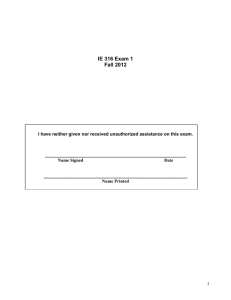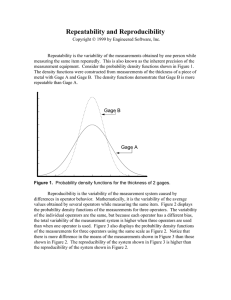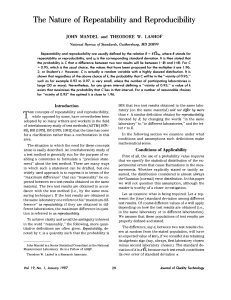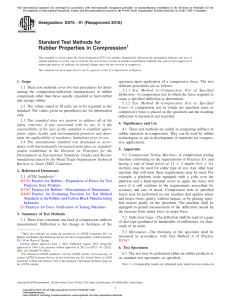2.2 General terms Measured Value The observed value of weight
advertisement
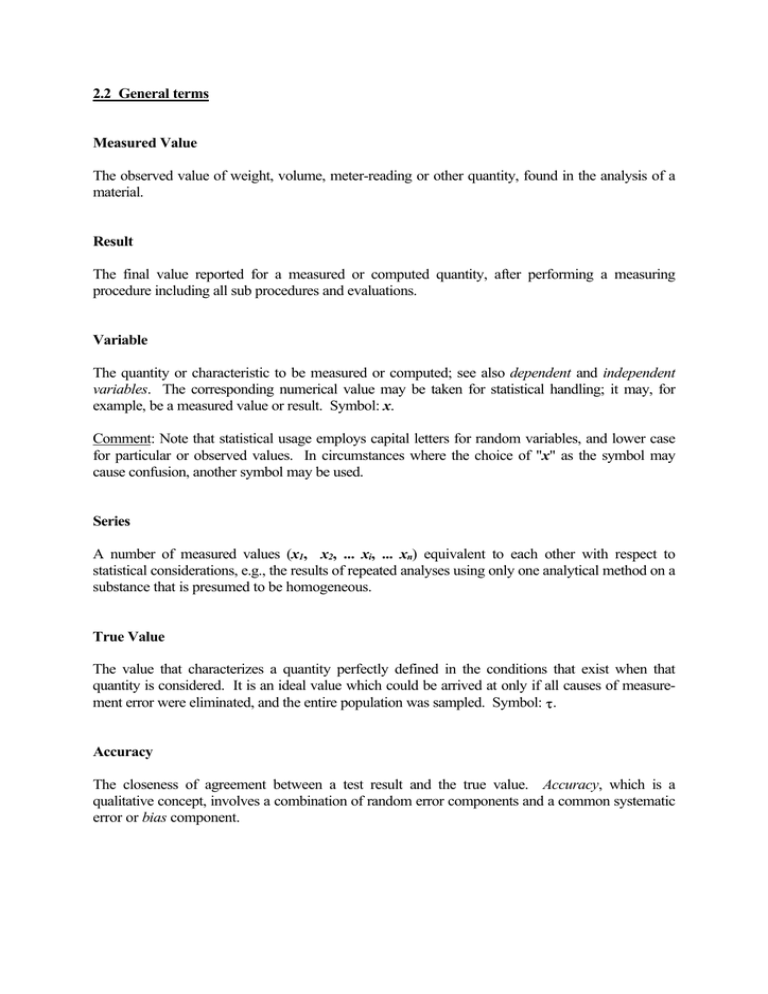
2.2 General terms Measured Value The observed value of weight, volume, meter-reading or other quantity, found in the analysis of a material. Result The final value reported for a measured or computed quantity, after performing a measuring procedure including all sub procedures and evaluations. Variable The quantity or characteristic to be measured or computed; see also dependent and independent variables. The corresponding numerical value may be taken for statistical handling; it may, for example, be a measured value or result. Symbol: x. Comment: Note that statistical usage employs capital letters for random variables, and lower case for particular or observed values. In circumstances where the choice of "x" as the symbol may cause confusion, another symbol may be used. Series A number of measured values (x1, x2, ... xi, ... xn) equivalent to each other with respect to statistical considerations, e.g., the results of repeated analyses using only one analytical method on a substance that is presumed to be homogeneous. True Value The value that characterizes a quantity perfectly defined in the conditions that exist when that quantity is considered. It is an ideal value which could be arrived at only if all causes of measurement error were eliminated, and the entire population was sampled. Symbol: τ. Accuracy The closeness of agreement between a test result and the true value. Accuracy, which is a qualitative concept, involves a combination of random error components and a common systematic error or bias component. Precision The closeness of agreement between independent test results obtained by applying the experimental procedure under stipulated conditions. The smaller the random part of the experimental errors which affect the results, the more precise the procedure. A measure of precision (or imprecision) is the standard deviation. When the performance of a method is of particular interest, the following two measures of precision are employed. Repeatability The closeness of agreement between independent results obtained with the same method on identical test material, under the same conditions (same operator, same apparatus, same laboratory and after short intervals of time). The measure of repeatability is the standard deviation qualified with the term: "repeatability" as repeatability standard deviation. In some contexts repeatability may be defined as the value below which the absolute difference between two single test results obtained under the above conditions, may be expected to lie with a specified probability. Reproducibility The closeness of agreement between independent results obtained with the same method on identical test material but under different conditions (different operators, different apparatus, different laboratories and/or after different intervals of time). The measure of reproducibility is the standard deviation qualified with the term "reproducibility" as reproducibility standard deviation. In some contexts reproducibility may be defined as the value below which the absolute difference between two single test results on identical material obtained under the above conditions, may be expected to lie with a specified probability. Note that a complete statement of reproducibility requires specification of the experimental conditions which differ.
